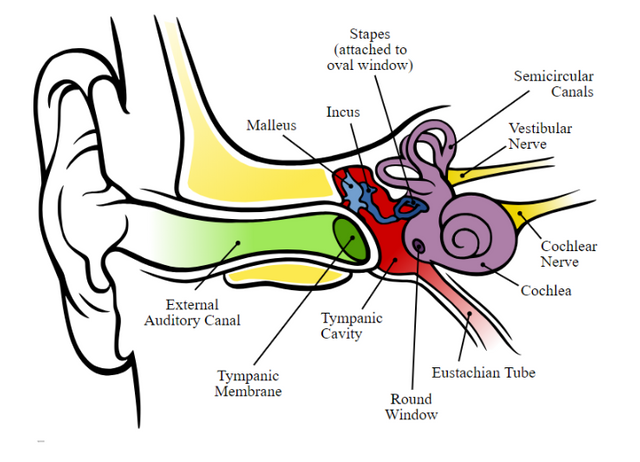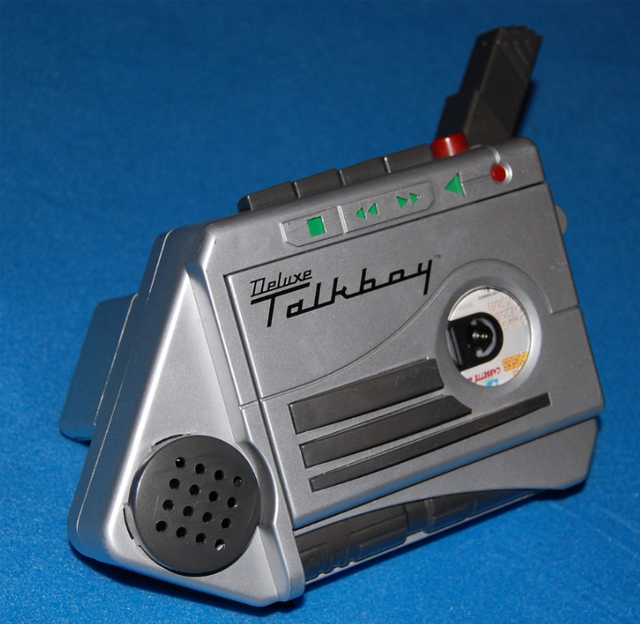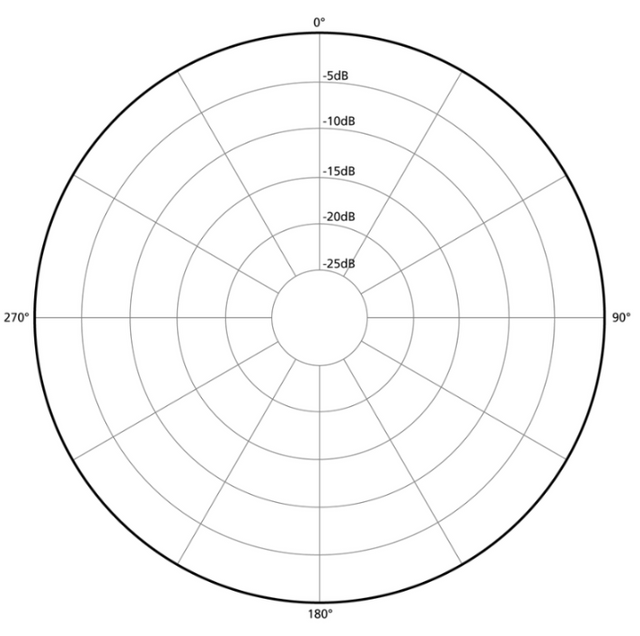Perceived, Actual and Literary Voices – Part 1

Credit: Alexandre Dulaunoy (CC 2.0)
I’m taking a break from talking about my abhorrent skin conditions to talk about something that I actually find interesting today: Developing a literary voice. Finding said voice is something that a lot of new writers struggle with, and I have some ideas about why that is, which I would like to share. I know, it sounds about as exciting as yesterday’s Denmark Vs France game, but stick with me - I’ll throw at least one or two self-deprecating jokes in to make it all worthwhile.
Specifically, I’m interested in our perceptions of our voices and how that might have an effect on what we put on paper. Here I’m going to refer to four voices:
- The voice that we hear when we speak.
- The voice that other people hear when we speak.
- The voice that we write in (our inner voice)
- The voice that we use after being rammed gooch-first into a novelty statue of a cactus.
My earliest memory of hearing my own voice was when I was twelve years old. It was 1999, and trailers of the Blair Witch Project were airing, showing us what the inside of the protagonist’s nose looked like as they ran around in blind panic. I also remember trailers of footage from the cinema as people watched and slowly lost their mind, running around, banging their heads on the wall in a futile attempt to just get the movie out of their brain. Imagine my disappointment then, when upon watching the movie as a 12-year-old potato, it turned out to be boring as sin. Fortunately for me, there was a real ghost/witch/ malevolent presence in my very own school, and so with two of my dumb friends (including soup-stirring extraordinaire @mobbs), we set out to capture the real Blair Witch - the Tony Blair Witch.
Doing so required a lot of running around our school, shrieking about how Tony Blair was gonna kill us or whatever (I don’t remember the content, besides it being bad.) After this became tedious, something that took a remarkably long time, we sat down to listen to the recording on my friend’s Talkboy - the device made popular by that rat kid in Home Alone. What we heard that day on that tape changed our lives for the rest of…the day.
We hadn’t caught a ghost on tape. The real Tony Blair Witch was probably in London signing off on war crimes. But what we had caught was a recording of my voice that was so high and irritating that I thought that I, myself, had been possessed by Screech from Saved By the Bell. Throughout the rest of the day, it slowly dawned on me that it was in-fact my real voice, and the cool Bruce Willis-like voice that I’d been hearing rattling inside my head my whole life was a complete fabrication.
Now I’m not saying that this was the first time I’d ever been recorded- there’s a videotape out there somewhere of a six-year-old me telling an entire birthday party about my dad’s vasectomy - but it was the first time I’d ever linked that voice with me as a person. I was 12 and my body was changing. Some things were growing, others not growing as much as I’d have liked, and my skin was turning red as Sebastian from the Little Mermaid (Who is apparently a crab, not a lobster? what kind of BS is that!?)
It turns out that the reason we don’t hear our actual voice out loud is due to the different ways our ears process audio. When we get hit by sound waves, those waves go through the air directly into our ears causing the sound to vibrate its ass up to our cochlea - a word I was definitely aware of before today and is basically the snail-shell part of the inner ear. It’s then the job of the brain to interpret the signals given to it by the cochlea through little vibrating hairs – a job it takes very seriously.

Credit: Chittka L, Brockmann (CC 2.5)
In contrast, when we hear our voices from the perspective of our own body, the sound has to resonate through our vocal cords and up to the skull, through the far more solid medium of bone and flesh before it can get to our eardrums and cochlea. This extra thick medium is a thicker barrier for sound to penetrate, but a better conductor of low frequencies than air, filtering out higher frequencies. This phenomenon is called bone conduction and is taken advantage of in numerous ways from hearing aids, headphones, tuning your instruments and that failure of a Google product.
So when we speak, the two combine together, leading us to believe that our voices are lower and cooler than they really are, but when we make an audio recording, the vibratey voice boxey deep frequencies aren’t caught, leaving just the high-pitched pig squeal that is our real voice. Doesn’t explain the constant cracking that my voice did in my teens though…
But we also have to consider the other side of this too. Typically, the only way we get to hear our own voice is through some technological recording (and yelling in a cave). This adds an extra set of barriers for external sound to pass through; from your voice to the microphone, from the microphone to the speaker and from the speaker to your ears. Each step of the journey works hard to make you sound as nasal as possible.
Aside from going through the air twice - unless you have speakers set into your skull - you have to deal with technology which, in the case of the Talkboy, was decidedly lo-fi, or low fidelity. This basically means it translates only the core aspects of the sound it’s receiving in order to be remotely tangible, cutting out all that juicy-ass bass as it goes.
But there’s little juicy-ass bass to begin with because a typical microphone used for mainstream products like phones and Talkboys are what we call omnidirectional, which pick up sound equally from all angles possible. The downside of this is a lack of any proximity effect - the effect when DJ’s or Radio Hosts shove their faces into the microphone which changes the frequency response to favour lower frequencies. This is an effect you only get with directional microphones.
A typical modern phone lacks a subwoofer capable of pushing out any remaining deep tones and starts cutting out anything below around 300 Hz. Case and point; how much of this can you hear on your phone?
My question then, is why, upon hearing this awful real voice, does our inner monologue voice not change? In my head, I still sound cool. Every time I think about something it’s like a noir detective novel being narrated by Christopher Walken. Well that’s something that I’ll explore a little further in part two.
Hearing voices in the high frequencies: What your cell phone isn’t telling you
Preference for Leaders with Masculine Voices Holds in the Case of Feminine Leadership Roles
Men's voices and women's choices
Voice pitch influences perception of leadership capacity in both men and women


Hi @deathbatter
We have selected your post as post of the day for our DaVinci Times. Our goal is to help the scientific community of Steemit, and even if our vote is still small we hope to grow in quickly! You will soon receive our sincere upvote! If you are interested in science follow us sto learn more about our project.
Immagine CC0 Creative Commons, si ringrazia @mrazura per il logo ITASTEM.
CLICK HERE AND VOTE FOR DAVINCI.WITNESS
Keep in mind that for organizational reasons it’s necessary to use the “steemstem” and “davinci-times” tags to be voted again.
Greetings from @davinci.witness and the itaSTEM team.
Extremely interesting post. Hope you had fun writing, as it was a great read :)
Hi @deathbatter!
Your post was upvoted by utopian.io in cooperation with steemstem - supporting knowledge, innovation and technological advancement on the Steem Blockchain.
Contribute to Open Source with utopian.io
Learn how to contribute on our website and join the new open source economy.
Want to chat? Join the Utopian Community on Discord https://discord.gg/h52nFrV
Little wonder why recordings of my voice sound like shit but my inner voice sounds like Morgan Freeman. A great read I must say :)
Congratulations @deathbatter! You have completed some achievement on Steemit and have been rewarded with new badge(s) :
Click on the badge to view your Board of Honor.
If you no longer want to receive notifications, reply to this comment with the word
STOPTo support your work, I also upvoted your post!
Do not miss the last post from @steemitboard!
Participate in the SteemitBoard World Cup Contest!
Collect World Cup badges and win free SBD
Support the Gold Sponsors of the contest: @good-karma and @lukestokes